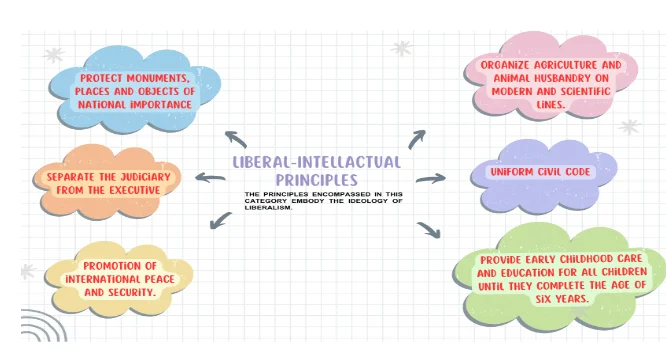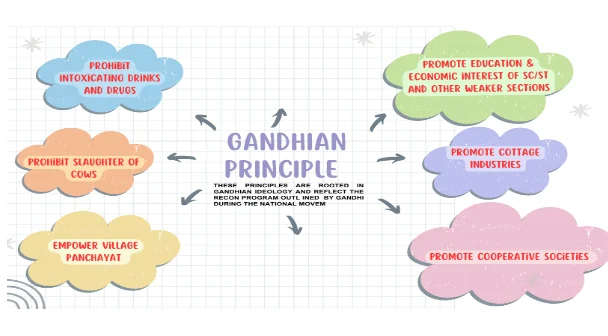The Directive Principles of State Policy (DPSP) in the Indian Constitution outline key socio-economic goals aimed at guiding the State towards a fair and just society. These principles, found in Articles 38 to 51, reflect the nation’s commitment to promoting welfare, equality, and justice. They serve as a moral compass for the government, striving for balanced development and social upliftment. Although non-enforceable, DPSPs are integral to shaping policies and governance.
Comprehensive Overview of the Directive Principles of State Policy
Classification of Directive Principles of State Policy (DPSP)
- Essence of the Nation’s Vision: Articles 38-51 in Part IV of the Indian Constitution embody the essence of the nation’s vision.
- Dr. Ambedkar hailed these principles as “novel features,” highlighting their significance.
- The Directive Principles, coupled with Fundamental Rights, encapsulate the core philosophy and soul of the Constitution.
- Dr. Ambedkar hailed these principles as “novel features,” highlighting their significance.
- The Conscience of the Constitution: Political scholar Granville Austin aptly termed them the “Conscience of the Constitution.”
- These principles serve as the moral compass guiding India towards a just, equitable, and enlightened society, reinforcing the nation’s commitment to its people’s welfare and progress.
- Classification of Directive Principles of State Policy (DPSP): The Constitution of India doesn’t classify the Directive Principles of State Policy (DPSP), but they are generally grouped into three categories based on their ideological source and goals:
- Socialist Principles
- Gandhian Principles
- Liberal and Intellectual Principles
Enroll now for UPSC Online Course
Socialist Principles
| Article 38 |
|
| Article 39 |
|
| Article 39A |
|
| Article 41 |
|
| Article 42 |
|
| Article 43 ( Both a socialist and Gandhian Principle) |
|
| Article 43A |
|
| Article 47 ( Both a socialist and Gandhian Principle) |
|

Gandhian Principles
- Definition: These principles draw their essence from Gandhian ideology, encapsulating the essence of Gandhi’s reconstruction program during the national movement.
- Grounded in the principles of Ahimsa (Non-violence), Swaraj (Good governance), Sarvodaya (upliftment of all), and Swavlamban (self-reliance), they serve as a tribute to Gandhi’s vision
| Article 40 |
|
| Article 43 |
|
| Article 43B |
|
| Article 46 |
|
| Article 47 ( Both a socialist and Gandhian Principle) |
|
| Article 48 |
|
Liberal-Intellectual Principles
- Definition: Liberal principles are the core beliefs and values of liberalism, a political and moral philosophy based on individual liberty, political equality, and the rule of law.
- Liberals believe that governments should be limited in scope and power and that individuals should be free to live their lives as they see fit, as long as they do not harm others.
| Article 44 |
|
| Article 45 |
|
| Article 48 |
|
| Article 48A |
|
| Article 49 |
|
| Article 50 |
|
| Article 51 |
|

Enroll now for UPSC Online Course
| Must Read | |
| Current Affairs | Editorial Analysis |
| Upsc Notes | Upsc Blogs |
| NCERT Notes | Free Main Answer Writing |
Conclusion
Despite their non-justiciable nature, Directive Principles play a crucial role in influencing government actions and ensuring social justice.
- They provide a framework for creating a more equitable society by addressing economic, social, and political needs.
- Through their aspirational goals, DPSPs drive the State to work towards a welfare-oriented approach, bridging gaps between ideals and practical governance.
Sign up for the PWOnlyIAS Online Course by Physics Wallah and start your journey to IAS success today!

 GS Foundation
GS Foundation Optional Course
Optional Course Combo Courses
Combo Courses Degree Program
Degree Program











